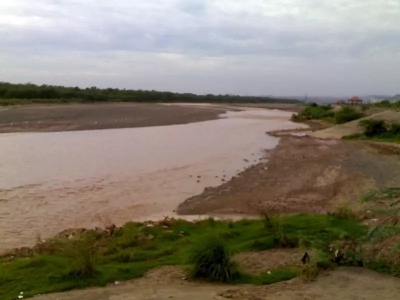New Delhi, Dec 9 (IANS) Two stretches of the Ghaggar, flowing through Punjab and parts of Haryana, have been identified as polluted, as per the last report published by CPCB in November 2022, the Parliament was informed on Thursday.
Out of the two polluted stretches of the Ghaggar, one stretch each is situated in Punjab and Haryana, Minister of State for Jal Shakti Raj Bhushan Choudhary said in a written reply in Lok Sabha.
Replying to a question from Kumari Selja of Congress, the MoS said that based on water quality monitoring results of the Ghaggar river for the year 2023, CPCB has informed that Total Dissolved Solids (TDS) were observed in the range of 198-1068 milligramme per litre (mg/l) in Haryana and 248-2010 mg/l in Punjab.
Also, the Ghaggar was found to comply with the designated best use water quality Criteria for Class E (irrigation, industrial cooling) during the period, the MoS said.
MoS Choudhary said that the Punjab Pollution Control Board has informed that to treat waste water from the towns in the catchment area of river Ghaggar, 28 STPs of total capacity 291.7 MLD have been installed and 15 STPs of 97 MLD are under construction.
The Haryana State Pollution Control Board has informed that sewage treatment capacity of 588 MLD has been created in the river catchment in the state under the Ghaggar Action Plan, he said.
In reply to a separate question on groundwater contamination in Punjab, the Ministry told Lok Sabha that as per the record of Punjab Pollution Control Board (PPCB) none of the industries are discharging their effluents into the ground through boring.
All the industries including water-polluting industries are being regularly monitored and physically checked by PPCB as per the mandate schedule, the Ministry said in response to a question.
The Ministry said that National Aquifer Mapping Studies have been carried out in Punjab for an area of 50,369 Sq km. Based on NAQUIM studies, groundwater management plans have been prepared and reports have been shared with state and district Authorities for implementation, the Ministry said.
Central Ground Water Board (CGWB) is successfully constructing arsenic-free wells in arsenic-affected areas using the cement sealing technology for tapping contamination-free aquifers and also providing technical assistance to state departments in fluoride mitigation, the Ministry said.
–IANS
rch/kvd
